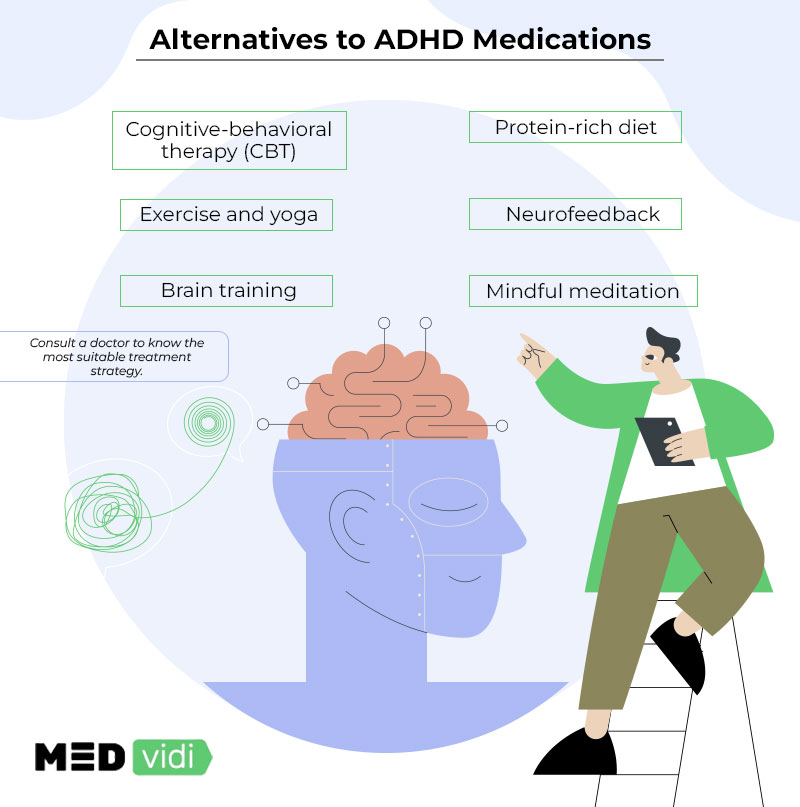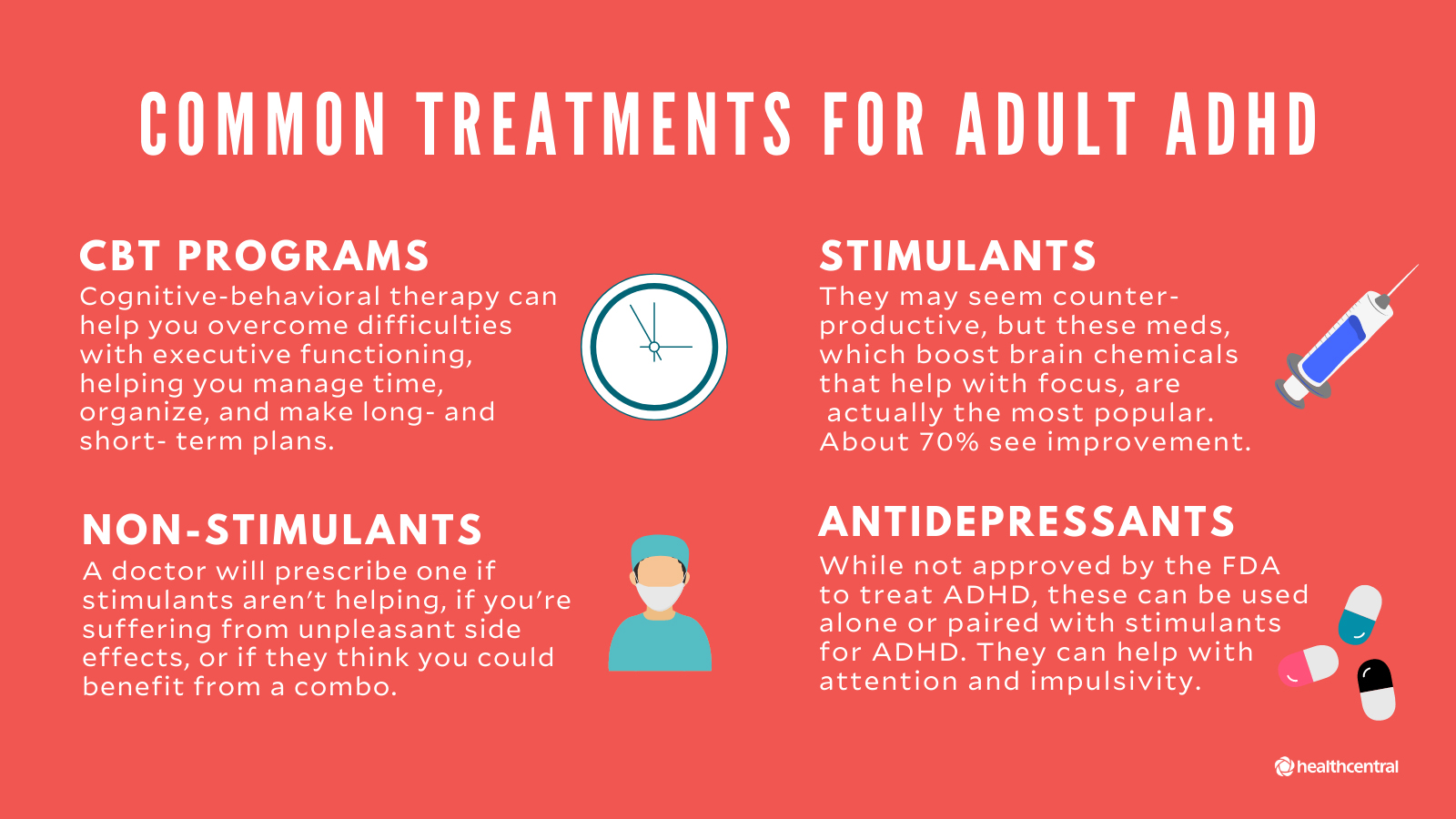Depression Doctor Experienced Effective Treatment
Depression Doctor Experienced Effective Treatment
Blog Article
The Benefits of Individualized ADHD Therapy Strategies for Better Outcomes
The application of tailored ADHD treatment plans has actually become a critical method in enhancing healing end results for individuals influenced by this condition. By acknowledging the one-of-a-kind indications of ADHD in everyone, these customized treatments advertise greater engagement and inspiration, ultimately causing extra effective coping methods. This customized approach not just addresses scholastic and occupational difficulties however additionally cultivates improved social relationships and overall high quality of life. Nonetheless, real extent of these advantages elevates important concerns regarding the certain parts that add to lasting success and how they can be optimized for diverse populations.
Recognizing ADHD Irregularity
Although Attention-Deficit/Hyperactivity Condition (ADHD) is frequently perceived as a single condition, its manifestations can differ considerably amongst individuals. This irregularity is influenced by a variety of variables, including age, sex, existing together conditions, and ecological contexts. Children with ADHD might display hyper habits, while adults might primarily battle with focus shortages. Sex differences additionally play a function, as men are much more frequently detected with ADHD and typically present much more obvious symptoms, whereas women might present with less noticeable inattentiveness.
Additionally, people with ADHD might experience a range of emotional and behavior obstacles, such as anxiety or oppositional defiance, that can make complex medical diagnosis and therapy. The interaction of these elements can cause diverse experiences of ADHD, requiring a nuanced understanding of the condition. It is additionally worth noting that ADHD can present in a different way throughout numerous social contexts, affecting just how signs and symptoms are recognized and dealt with. This understanding highlights the importance of acknowledging ADHD as a diverse problem, which asks for personalized approaches to treatment that consider the one-of-a-kind demands and experiences of each person.
Secret Parts of Personalization
Personalized ADHD treatment strategies are based in several key parts that make certain efficient management of the problem. A comprehensive analysis is important, involving standard rating scales, meetings, and behavior observations. This comprehensive analysis enables medical professionals to comprehend the individual's special symptoms, toughness, and challenges.
2nd, the involvement of several stakeholders, consisting of parents, educators, and the individual, adds to a holistic sight of the individual's requirements. Cooperation fosters an encouraging environment that can adapt to the person's context and lifestyle.
Third, therapy strategies should be versatile and versatile, permitting for modifications based on recurring feedback and the individual's progressing needs. This versatility makes it possible for the integration of different healing approaches, such as behavioral interventions, psychoeducation, and medicine monitoring.
Furthermore, social and contextual variables have to be considered. Acknowledging the person's history, values, and preferences guarantees site that the treatment matters and respectful.
Lastly, regular follow-ups and evaluations are necessary to check progress and make required modifications. By concentrating on these key components, personalized ADHD treatment plans can considerably enhance the efficiency of interventions, resulting in enhanced results for individuals with ADHD.
Improved Interaction and Motivation
To efficiently promote enhanced engagement and motivation in individuals with ADHD, it is vital to incorporate strategies that reverberate with their passions and toughness. Individualized therapy plans that align with a person's interests can result in boosted involvement in restorative activities, fostering a feeling of possession and interest for the procedure.
Using interactive and innovative techniques can also significantly boost inspiration. Incorporating gamification components or real-world applications of skills can make jobs a lot more appealing and pertinent. This not only records focus however also enhances discovering through delightful experiences.
Additionally, setting possible and meaningful objectives tailored to the person can reinforce inspiration. When individuals see their progression towards directly significant purposes, they are much more most likely to remain involved. Regular responses and recognition of achievements can further endure inspiration, creating a favorable feedback loop that urges continued initiative.
Last but not least, promoting an encouraging environment where individuals really feel understood and valued can substantially influence their engagement levels. When therapy strategies are developed collaboratively, including input from the individual, they are more probable to feel invested in their journey, eventually bring about improved outcomes in handling ADHD.
Improved Coping Approaches
Developing improved dealing approaches is essential for individuals with ADHD, as it furnishes them with reliable devices to navigate everyday difficulties. A personalized treatment plan permits the recognition of details coping mechanisms tailored to the individual's distinct requirements and conditions - ADHD treatment. Techniques such as mindfulness, time monitoring abilities, and business techniques can be incorporated right into daily routines, fostering a feeling of control and reducing stress and anxiety
Mindfulness methods, including meditation and deep-breathing workouts, aid people with ADHD concentrate their attention and manage their feelings. Time monitoring strategies, such as using timers or breaking jobs into smaller sized, manageable steps, can mitigate feelings of bewilder. Additionally, organizational devices like planners and checklists can enhance efficiency and accountability.
Long-term Positive End Results
Implementing personalized ADHD therapy strategies can cause significant long-term favorable results for people. These tailored techniques, which think about unique signs and symptoms, preferences, and life scenarios, help with much more reliable management of ADHD signs in time. By focusing on the certain demands of the individual, these strategies improve adherence to therapy methods and foster greater engagement in healing activities.

In addition, individualized treatment strategies can substantially minimize the risk of comorbid problems, such as stress and anxiety and depression, which are commonly connected with ADHD. Early treatment and constant support assistance individuals construct resilience and coping approaches, promoting total mental wellness.
Inevitably, the long-lasting favorable outcomes of customized ADHD therapy plans not only boost the quality of life for individuals however additionally add to their general health and success in various life domains. This alternative strategy underscores the value of customized care in handling ADHD successfully.
Verdict

Report this page